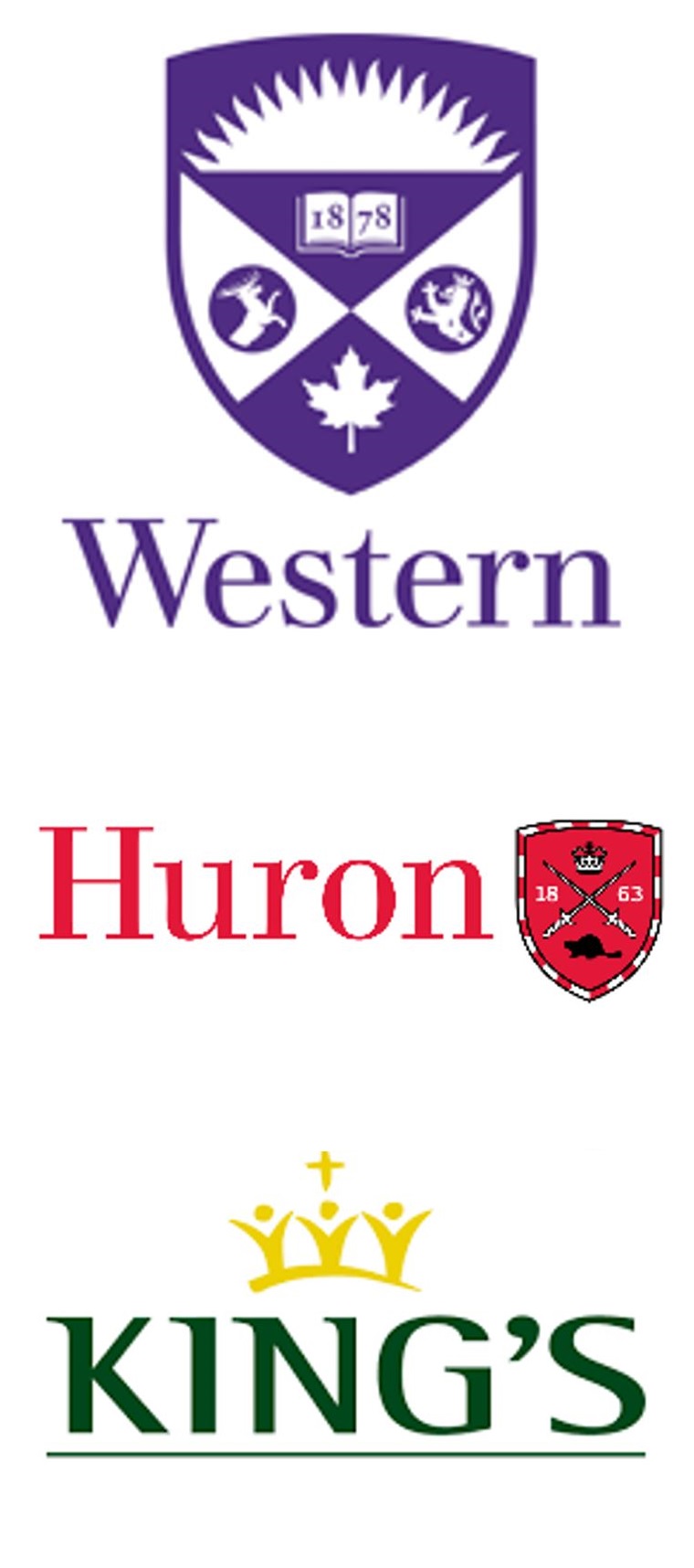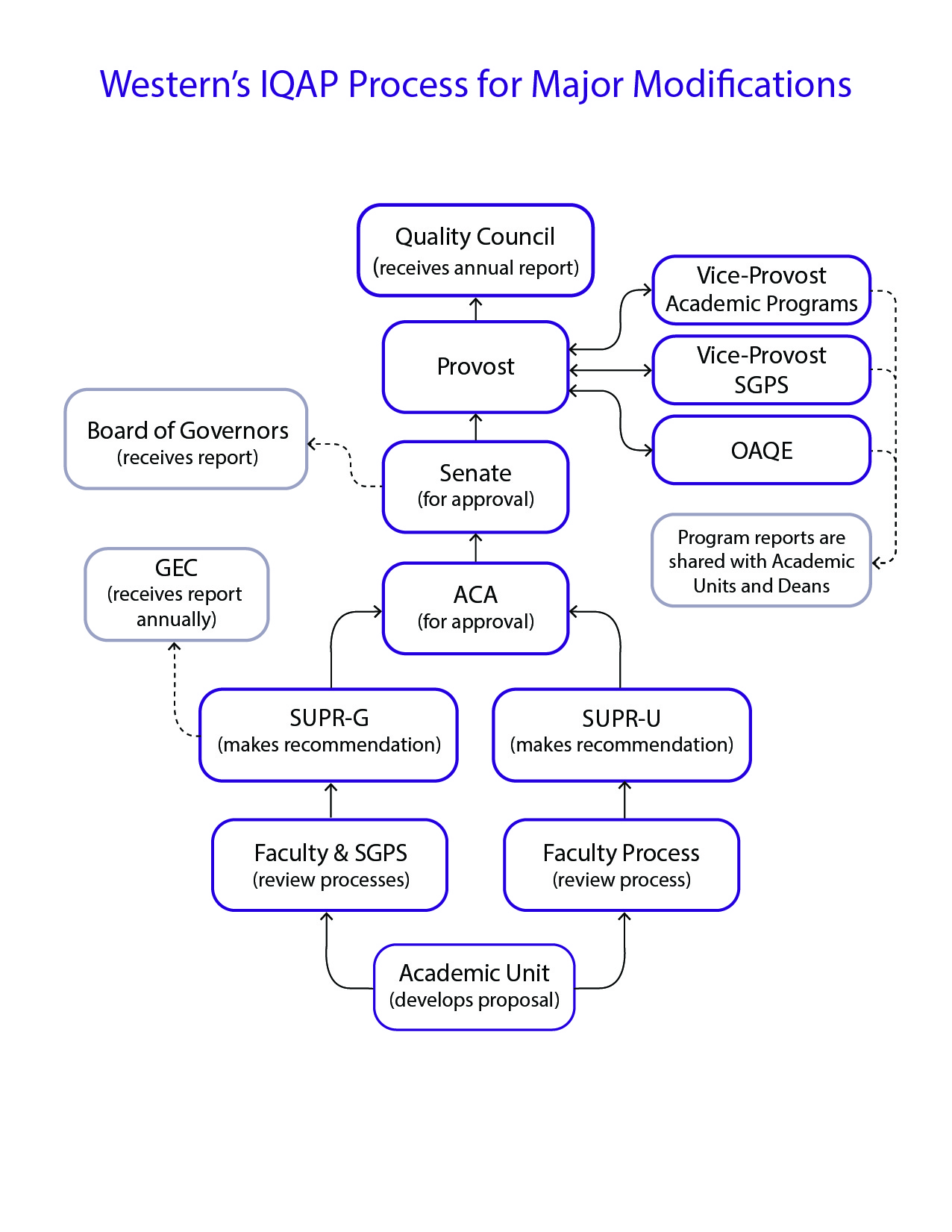
Major Modifications to Existing Programs
Continuous improvement is the ultimate goal of the ongoing and dynamic work of academic programs at Western as they create living documents that meet evolving standards and measures of quality in their programs. The quality assurance processes associated with major program modifications arising from program renewal and/or significant changes are designed to ensure that the educational experiences students have are engaging and rigorous, but also that the programs through which the experiences are provided are routinely monitored and, if necessary, revised. Typically, major modifications to a program are made to:
- implement the outcomes of a Cyclical Program Review;
- reflect the ongoing evolution of the discipline;
- accommodate new developments in a particular field;
- facilitate improvements in teaching and learning strategies;
- respond to the changing needs of students, society, and industry; and/or
- respond to improvements in technology.
Determination
Common programmatic changes that fall under major modifications to existing programs include one or more of the following:
a) Introduction of a new undergraduate module (honours specialization, specialization, major, and minor) that comprises primarily existing courses and that is offered with existing faculty expertise and resources. However, if the proposed module has requirements and learning outcomes that are substantially different from those of any existing module, it must be reviewed as a New Program;
b) A change in program requirements that differ significantly from those existing at the time of the previous cyclical review or the introduction of the program, including, for example:
• the merger of two or more existing programs;
• the introduction of a combined program option;
• the introduction or deletion of a thesis requirement;
• the introduction or deletion of a laboratory requirement;
• the introduction or deletion of a practicum, work-experience, internship, or portfolio requirement; and
• creation, deletion or renaming of a field in a graduate program or a collaboravtive specialization.
c) A change in program name and/or degree nomenclature, when this results in a change in learning outcomes;
d) Changes to program content, other than those listed in a) above, that necessitate changes to the learning outcomes, but do not meet the threshold for a new program. For example:
• major changes to courses (or program milestones) comprising a significant proportion of the program (approximately one-third or more of courses).
• changing the mode of delivery of a program to online for all or a significant portion of a program that was previously delivered in-person (or vice versa).
Institutional Process for Major Modifications

SGPS - School of Graduate and Postdoctoral Studies
OAQE - Office of Academic Quality and Enhancement
ACA - Senate Committee on Academic Curriculum and Awards
GEC - Graduate Education Council
SUPR-G - ACA Subcommittee on Program Review – Graduate
SUPR-U - ACA Subcommittee on Program Review – Undergraduate
Summary of Steps
Proposal Brief
Input from current students and recent graduates of the program should be considered as part of the development of the proposal (e.g., targeted survey, focus group, consultation with designated student representatives), with the proposal including a statement on the way in which the proposed major modification will improve the student experience.
• Maintenance of and/or changes to the program objectives and program-level learning outcomes;
Program Closure
• Rationale for the closure, including alignment with the unit's academic plan;
• Impact of closure on other units, including inter-Faculty and inter-institutional agreements/contracts; and
